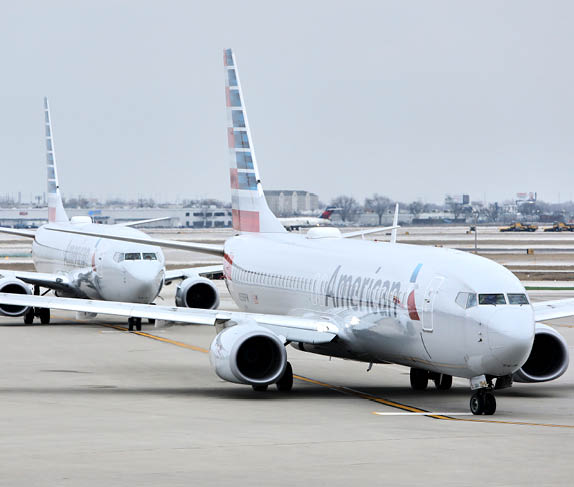Boeing has confirmed that deferral rates from airline for aircraft deliveries are still "well below historical average”. Speaking on a conference call, Chief Executive Officer Dennis Muilenburg , said requests to defer, accelerate and cancel aircraft deliveries were about 1% of the company's total backlog in the latest quarter, compared with an average of 6% over the past 15 years.
Boeing reports first-quarter results and reaffirms 2016 guidance
Boeing’s reported first-quarter revenue increased 2 percent to $22.6 billion. Core earnings per share (Non-GAAP) of $1.74 reflect solid core operating performance that offset a $156 million after-tax charge ($0.24 per share) on the KC-46 Tanker program to maintain schedule with concurrency between late-stage development testing and the transition to initial production. GAAP earnings per share was $1.83.
The company's full year guidance is reaffirmed, primarily driven by improved performance.
"Higher year-over-year deliveries of military aircraft and continued solid operating performance on core production programs drove revenue growth and strong cash flow for Boeing in the first quarter," said Chairman, President and Chief Executive Officer Dennis Muilenburg. "This performance enabled our ongoing investments in new product innovation and in our people, and the return of significant cash to shareholders through stock repurchases and dividends."
"Overall, we are pleased with our performance trends and our outlook for the year remains positive," said Muilenburg. "Our teams are focused intensely on delivering on our existing commitments including the production ramp-up associated with our large and diverse backlog, accelerating progress on quality, safety and productivity improvements company wide, returning greater value to shareholders through profitable growth, and investing in the future as we enter our second century in business."
Operating cash flow in the quarter was $1.2 billion, reflecting commercial airplane production rates, solid core operating performance and the timing of receipts and expenditures. During the quarter, the company repurchased 28.6 million shares for $3.5 billion, leaving $10.5 billion remaining under the current repurchase authorization which is expected to be completed over approximately the next two years. The company also paid $0.7 billion in dividends, reflecting an approximately 20 percent increase in dividends per share compared to the same period of the prior year.
Cash and investments in marketable securities totaled $8.4 billion, down from $12.1 billion at the beginning of the quarter, primarily due to share repurchases and the timing of cash flows. Debt was $10.0 billion, unchanged from the beginning of the quarter (Table 3).
Total company backlog at quarter-end was $480 billion, down from $489 billion at the beginning of the quarter, and included net orders for the quarter of $13 billion.
Commercial Airplanes first-quarter revenue decreased to $14.4 billion on lower delivery volume (Table 4). First-quarter operating margin was 7.2 percent, reflecting the $162 million pre-tax charge on the KC-46 Tanker program, higher R&D, mix and a $70 million pre-tax charge on the 747 program.
During the quarter, the company completed first flight of the 737 MAX. The 737 program has captured nearly 3,100 orders for the 737 MAX since launch. Also during the quarter, the company began major assembly of the 787-10 ahead of schedule and launched the Next-Generation 737 freighter conversion program.
Commercial Airplanes booked 121 net orders during the quarter. Backlog remains strong with over 5,700 airplanes valued at $424 billion.
At quarter-end, Boeing Capital's net portfolio balance was $3.2 billion, down from the beginning of the quarter. Unallocated items and eliminations first quarter revenue reflects the payoff of two aircraft previously financed by Boeing Capital. Total pension expense for the first quarter was $629 million, down from $785 million in the same period of the prior year. Other unallocated items and eliminations decreased from the same period in the prior year primarily due to lower deferred compensation expense.
The company's 2016 financial and delivery guidance is reaffirmed and reflects continued solid performance across the company.

